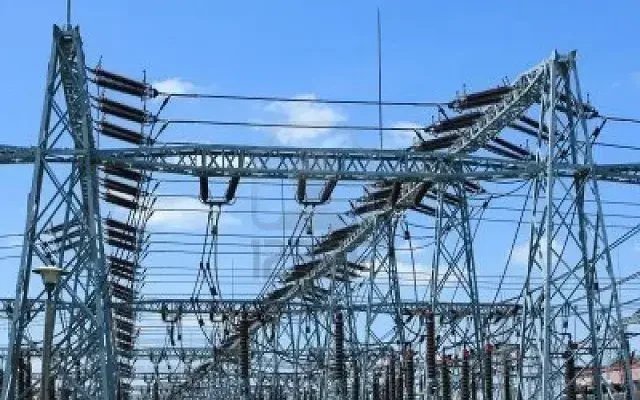
— Concerns rise over readiness, regulation, and consumer protection as states gain autonomy
Nigeria’s power sector is undergoing a historic transformation as 11 states move towards self-regulation of their electricity markets under the newly signed Electricity Act 2023, ending decades of centralised oversight by the Nigerian Electricity Regulatory Commission (NERC).
The landmark law, signed by President Bola Tinubu in 2023, decentralises control of electricity generation, transmission, distribution, and regulation, granting states the legal authority to operate independent electricity markets within their territories. So far, seven states—Enugu, Ondo, Ekiti, Imo, Oyo, Edo, and Kogi—have completed their transition, while Lagos, Ogun, Niger, Plateau, and Anambra are in varying stages of operational handover.
According to NERC, these states are now empowered to license electricity providers, set tariffs, and enforce market standards. Already, state-level regulatory agencies like the Enugu State Electricity Regulatory Commission and the Lagos State Electricity Regulatory Commission (LASERC) have begun issuing directives and taking enforcement actions.
In Enugu, for instance, the newly licensed MainPower Electricity Distribution Ltd was recently sanctioned for overbilling consumers, a move stakeholders say reflects growing capacity at the subnational level.
Opportunities and Challenges
While the reforms are seen as a significant step towards true federalism and market competitiveness, they have also raised critical concerns. Stakeholders and experts have flagged issues around manpower shortages, regulatory capacity, subsidy decisions, and potential consumer exploitation.
A senior NERC official, speaking anonymously, warned that the burden of managing electricity markets could overwhelm some states.
“Most states don’t have the expertise to set electricity tariffs or manage technical aspects of the grid. It’s a very specialised field. Without adequate human resources and training, the transition could backfire,” the official said.
Asset delineation, where a single transmission line cuts across several states, and enforcement of electricity theft penalties are also proving problematic, as states lack established structures for regulation and law enforcement in the power sector.
NERC has so far issued 11 transfer orders to states that met the statutory requirements, each with a six-month transition window. Lagos and Ogun are expected to complete their transitions this June, with Niger and Plateau following in July and September respectively. Anambra, which recently passed its electricity law, has also launched its regulatory commission.
Mixed Reactions from Industry Players
Adetayo Adegbemle, Executive Director of PowerUp Nigeria, welcomed the reforms but questioned the readiness of many states.
“Out of the 11 states, only four have established any form of regulatory framework. The rest have done little beyond receiving approval. It’s one thing to get the green light—it’s another to roll up your sleeves and get the work done,” he said.
Adegbemle warned that the absence of functioning regulatory bodies could create a vacuum that leaves consumers unprotected, especially once NERC steps aside.
Kunle Olubiyo, President of the Nigeria Consumer Protection Network, described the shift as a true expression of federalism. He stressed that the reforms could stimulate private investment and promote competition, provided the Constitution remains the final arbiter in case of jurisdictional disputes between state and federal entities.
“This is not about breaking up the national grid. It’s about giving states the power to provide tailored energy solutions where the national framework has failed,” Olubiyo said.
States Respond
In Ekiti State, Commissioner for Infrastructure Prof. Mobolaji Aluko confirmed that the state had already formed the Ekiti State Electricity Regulatory Bureau and was working closely with stakeholders, including the Discos and Gencos, to ensure a smooth transition.
Aluko advocated for the creation of subnational Discos from legacy operators, stating, “You cannot regulate what you didn’t license. That’s why subnational Discos must emerge, and as many of NERC’s regulations as possible should be domesticated to avoid disruptions.”
Ondo State, which enacted its power sector law as far back as 2020, also reaffirmed its preparedness. Johnson Alabi, Chairman of the Ondo State Power Company, said discussions with Benin Electricity Distribution Company had led to the formation of a state-specific subsidiary, Benin Electricity Ondo Limited, which now operates under the state’s regulatory framework.
Looking Ahead
Experts say the coming months will be critical as more states complete their transitions. While states like Lagos, Enugu, and Ondo appear well-positioned, others may struggle to match the pace due to limited institutional capacity and technical know-how.
Prof. Dayo Ayoade, an energy law expert at the University of Lagos, urged cooperation between federal and state regulators during the transition. He advised states to avoid erecting barriers that could discourage investment and recommended robust consumer protection measures.
Adeola Samuel-Ilori of the All Electricity Consumers Protection Forum echoed this concern, stressing that political interference must not be allowed to undermine the reforms.
“The states now have an opportunity to prove that decentralisation can deliver better results. But if they fail to implement strong, transparent regulations, consumers may prefer the old centralised system,” he cautioned.
As Nigeria navigates this transition to a decentralised power structure, all eyes will be on the early adopters to demonstrate that local control can lead to improved service delivery, accountability, and investment in a sector long plagued by inefficiencies and stagnation.

Comments